Durian myths
Whether or not you’ve tasted it, you have definitely smelled it – durian season is here once again, bringing with it our annual share of Mao Shan Wang, D24 and Hong Xia. No matter which is your favourite, you might have heard of some durian myths, like using durian seeds to get rid of the fruit’s smell when washing your hands.
While some of us swear by these durian myths, others aren’t sure but just do sua. If you’ve been wondering if those rumours are true, we tried some “hacks” for ourselves:
– Getting rid of durian smell –
1. Gargling water poured into the white husk of the durian
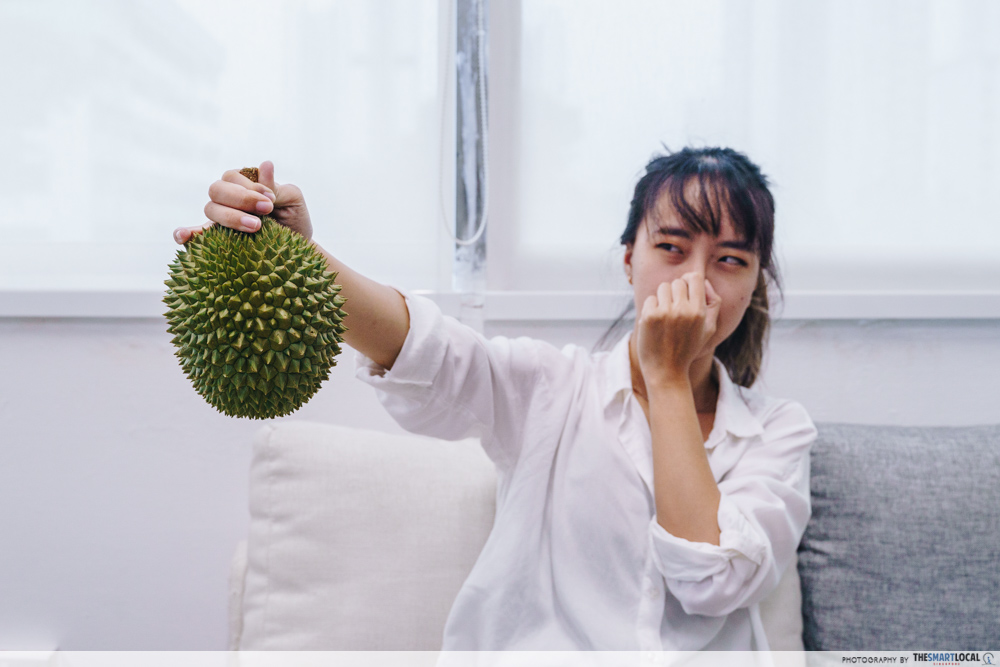
The smell of the king of fruits is the biggest nemesis of the anti-durian club. But even if you live and breathe durian, it wouldn’t be fun having its pungent fragrance lingering on every time you exhale – especially with a mask on.
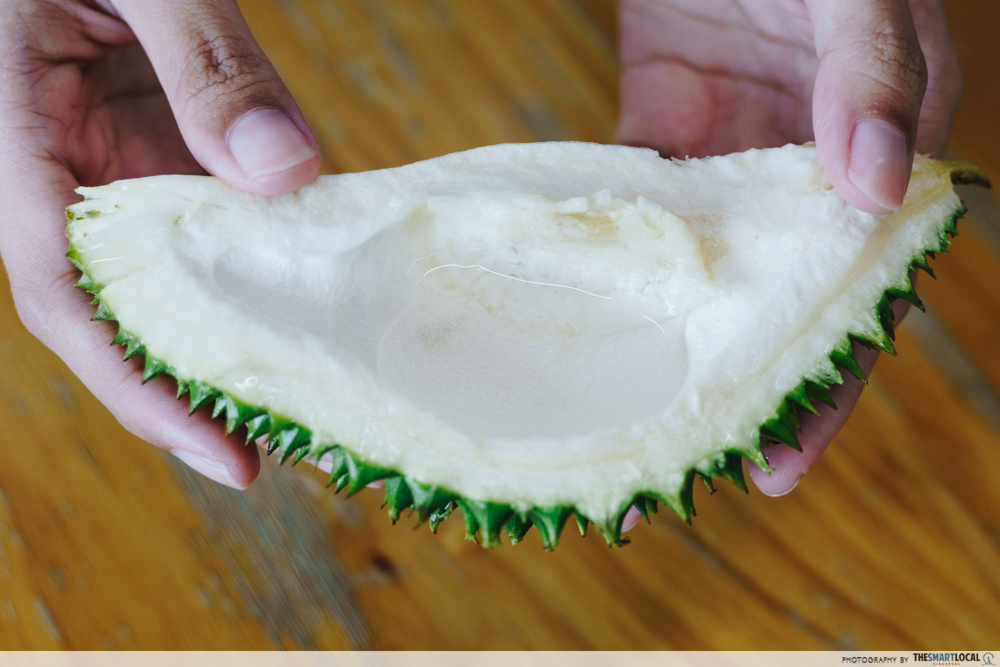
Mothers say: fill the empty husk of the durian with water and gargle it. We put it to the test and the first impression was that it felt like a comically weird thing to do. Not to mention, an uncomfortable one at that, since you’re likely to get pricked by the thorny shell.
Pro-tip: Transfer the durian water into a cup before gargling to avoid it spilling everywhere.
Breath-test wise, using just durian husk water didn’t do much and left a niap niap (dry) taste in the mouth. Adding salt into the mix, however, cleared the residual taste and smell almost completely. So KIV this if you’re heading out on a date after your durian snack.
Verdict: True – but add salt for added effectiveness.
2. Washing hands with durian seeds after feasting
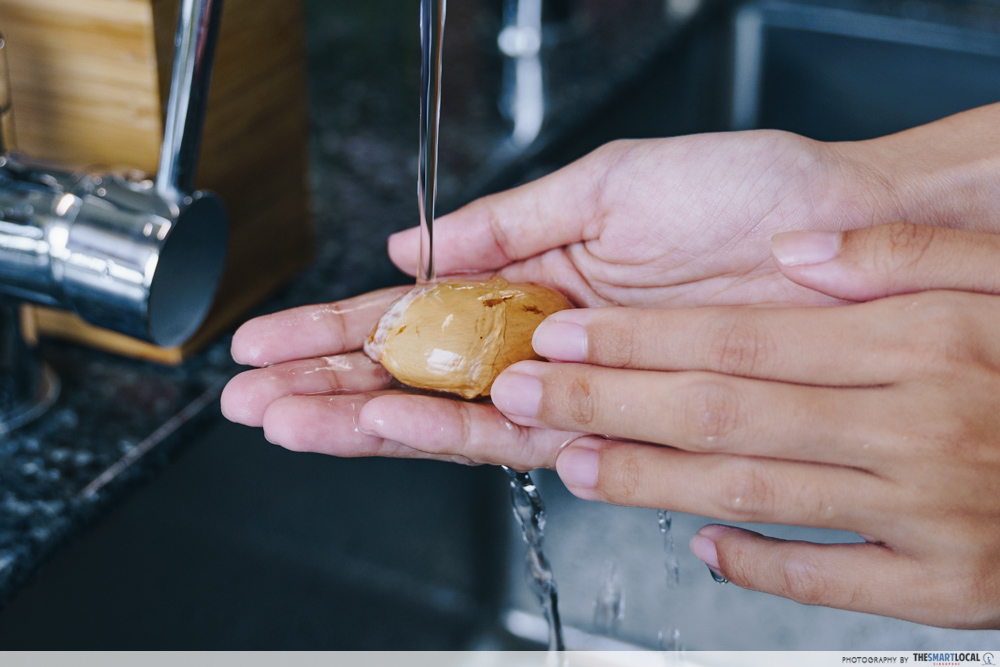
Unless you’re one of those monsters who eat durians with utensils, most of us have stinkin’ hands after enjoying the fruit.
Another common tip: wash your hands with the seed or husk to remove the smell. We put this to the test in our office – much to the displeasure of some durian-haters – with the following experiments:
- Washing with just water (control test)
- Washing with the durian husk
- Washing with the durian seed
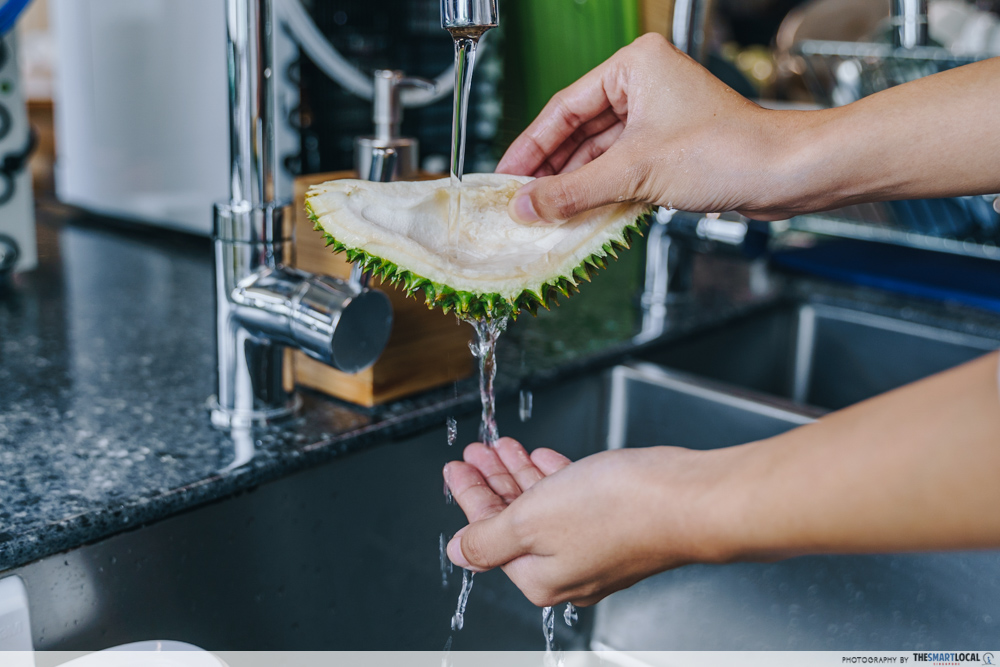
It seemed like all three methods removed the stench at first – till we realised later that our noses might be desensitised after spending the last hour near durians. A colleague helped us out with a sniff test and lo and behold, the myth is true.
Using the durian husk removed the stench more than tap water did, but the seeds surprisingly got rid of the smell almost entirely. Guess there is some truth to this old wives’ tale.
Verdict: True
– Durian health tips –
3. Eating durian and drinking alcohol can kill you
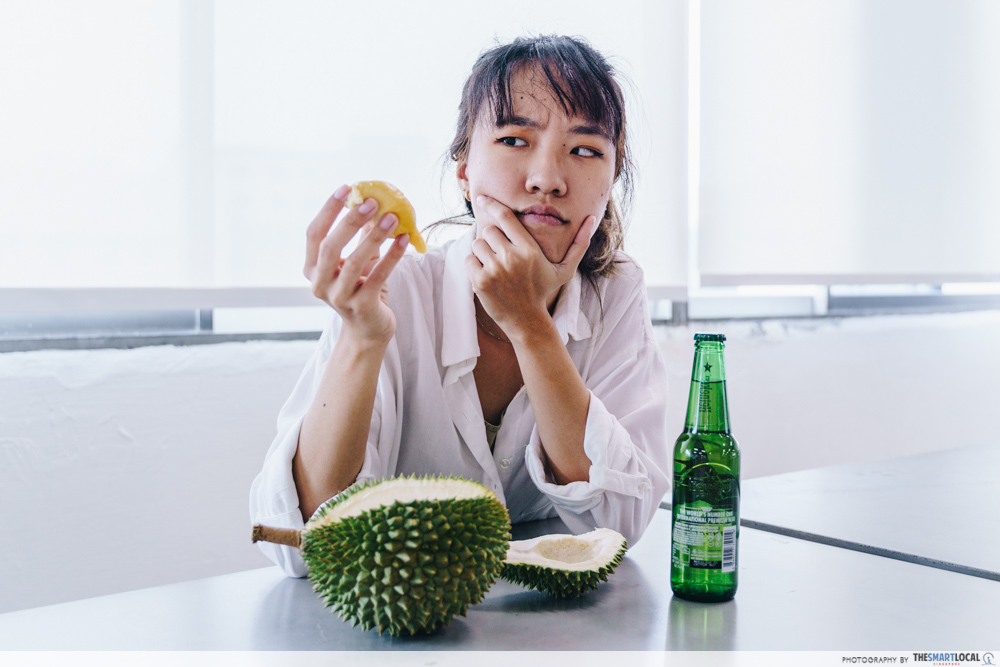
One common “health warning” you might have heard through the grapevine is never to drink beer while consuming durian, lest it kills you.
For those who are worried to death about unwittingly consuming this combo, rest assured that it’s not true – according to science, at least.
Researchers at the University of Tsukuba did the experiment on 200 mice and while they got a little drunk, all came out a-ok. Of course, we aren’t mice and toeing the line of death isn’t the goal.
But according to other studies, the worst durian + alcohol might do for you is worsen a hangover, as durians make the liver work extra hard to break down its sugar and fat content, resulting in the slower metabolisation of alcohol. When both are consumed excessively, bloating and indigestion can also occur.
P.S.: We didn’t try this to avoid indigestion!
Verdict: False
4. Those with high blood pressure should avoid durians
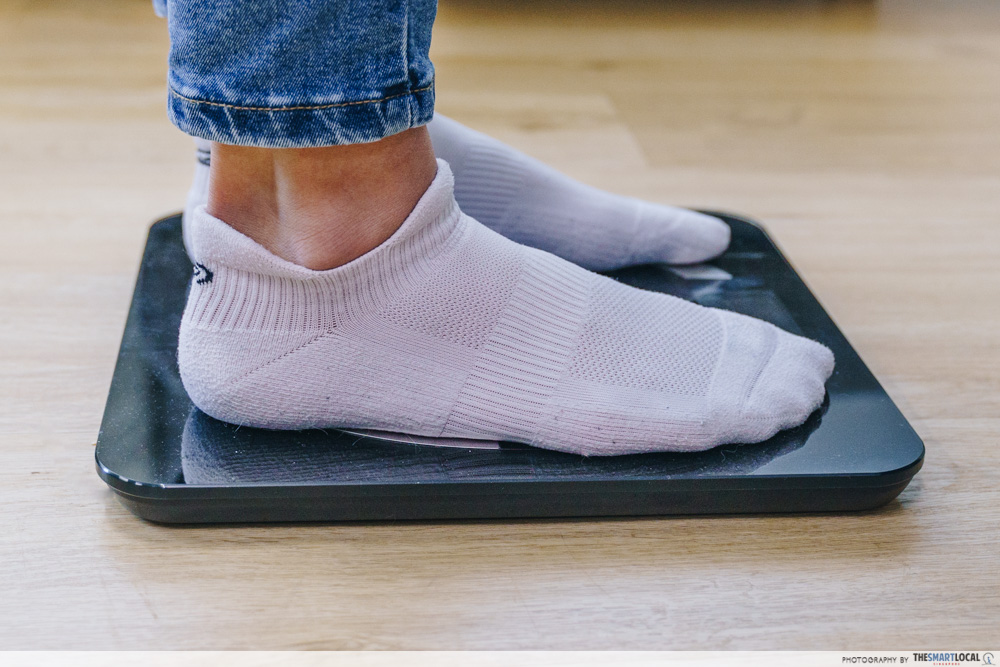
The king of all fruits tastes so sinfully good, it’s easy to mistake it as an unhealthy treat that those with high cholesterol and blood pressure should steer clear away from. But some internet sleuthing will tell you that’s not quite the case.
Durians have zero cholesterol, meaning they aren’t a contributor to heart diseases. Some sources even make the debatable claim that durians can help reduce cholesterol and blood pressure levels thanks to having monounsaturated fat. Despite the “fat” in its name, this is good for health, sorta like “good bacteria”.
One thing is for sure though: if you have high blood pressure or cholesterol levels, you can still eat durians if you want to. Just be sure to enjoy it in moderation as “durian OD” comes with other health consequences like a thickening waistline – durians do have a high calorie count!
Verdict: False
5. Eat mangosteen with durian to avoid falling sick

According to traditional Chinese medicine, durians cause “heatiness”. You may have experienced sore throats, ulcers or a super-phlegmy throat after an MSW feast. To combat this, Singaporeans widely believe that enjoying the fruit with “cooling” food and drinks can help alleviate these symptoms. These include:
- Mangosteen
- Chrysanthemum tea
- Green tea
- Coconut water
- Salt water
It kinda explains why at durian feasts like MSW buffets, some of the above are served alongside the thorny treat. While many friends and family have proclaimed that they help cool the body down, there’s been no proof from the Western medicine side of things that this works.
If you’re a firm believer in TCM though, go ahead with the coconut water, tea and mangosteen – they’re good for health anyway.
Verdict: True – but according to TCM only.
6. Durian boosts breast milk supply post-pregnancy

Eating durians to boost breastmilk supply and quality is a little trick new moms may hear from confinement nannies.
The reasoning is that durians contain plenty of nutrients and that supposedly translates to “good” breast milk. However, this hasn’t actually been backed up by any scientific studies or research.
A colleague who recently gave birth also gave it a shot but reported that there was no difference, rendering this claim false in our books – at least until there’s further proof.
Verdict: False
7. Eating durians can help relieve insomnia

A quick science lesson: durians contain a chemical called tryptophan. When consumed, it is converted into melatonin, a hormone that helps the body regulate sleep. In English: durians can help you sleep better, perfect for those who constantly toss and turn every night.
Of course it isn’t a cure-all, and how effective it is varies from person to person, depending on how much durian you devour. If you’re going to give this a shot, try mixing it up with some bedtime yoga, daily exercises and breathing techniques.
Verdict: True, but results may vary.
Bonus: You can eat durian seeds
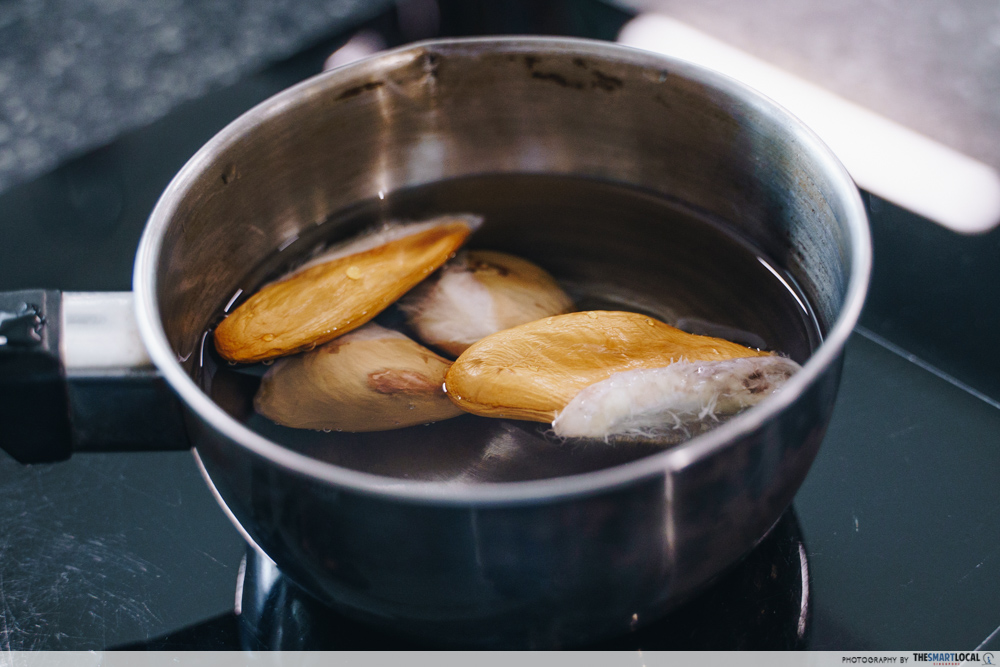
Boil the seeds until they float, peel off the skin and take a bite. Unlike those of apples, durian seeds can actually be eaten, as ridiculous as the concept may be. Depending on the type of durian you have, the seed can either taste like chestnut or super-bland potato, with a rough and starchy texture.
Verdict: True – but not very nice.
Testing out durian myths
There are way more myths out there that surround Singapore’s #1 favourite fruit. Some even go as far as to say that eating the durian husk can cure dementia – not true btw – but here are the most common myths that we’ve researched to deliver their verdicts once and for all.
You can best bet that we’ll be awkwardly gargling our mouths with durian husk water this season!
For more durian articles:
Cover image adapted from: TheSmartLocal
